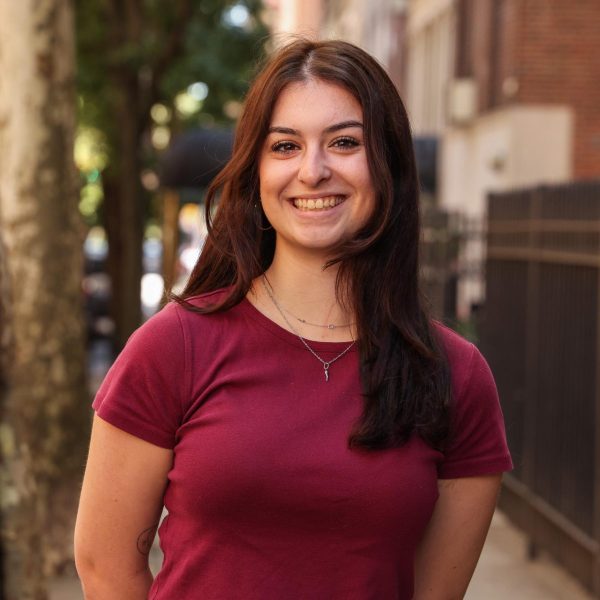When I am asked where I’m from, I usually say northern Westchester County. I do not say my exact town name, mostly because it’s so small that I highly doubt anyone would have heard of it. But the person I’m talking to may have seen the viral Fox News clip of a woman at my town’s school board meeting screaming out against critical race theory.
Westchester County, like many suburbs across the country, is quite different from New York City. Growing up, I begged my mom for an Abercrombie & Fitch shirt and fleece North Face jacket. Friday Night Lights were a big deal and practically shut down the town every week. The student section of the bleachers had strict rules: repeat the chant twice, dress to the theme and don’t throw the baby powder before the scream of “I believe that we will win” at the beginning of each game.
There was a charm to the small-town life, but it had a dark side. I was surrounded by carbon copies who thought they had a right to control me and my life. That’s why I committed to NYU — to have a chance to truly express myself. To get away from my small town and live in a big city that encourages self-expression. I would soon realize that the image of New York City I had created in my head didn’t align with reality.
Back in high school, I used to avoid wearing brands that weren’t deemed cool, like Gap or Old Navy — which are great stores, by the way. In college, here in the city, I don’t have to impress the other women around me. I used to worry about who was going to notice that I wore my white Vans two days in a row. No one cares here. I don’t have to spend my hard-earned tips on overpriced American Eagle Outfitters jeans.
New York City offers the chance to wear what I want without worrying about what others think of me. The employees at the on-campus Starbucks have seen me at my best and at my worst. I accidentally wore my slippers to Washington Square Park the other day and nobody even glanced my way. Sure, I often feel underdressed in the dining halls, but that’s just coming from my own insecurities. Probably the only thought people have when they see me at Downstein is “Damn, she took the last bagel.”
I don’t find myself worrying about what the other students in my lecture may think of my appearance, nor do I worry about being compared to other women around me. But now I have to worry about unwanted sexual advances. I traded a cafeteria of mean girls for streets filled with creepy men.
Before my parents dropped me off at the end of August, they gifted me a Swiss Army knife, a hand-held mace, and three rules: don’t go on the subway, don’t walk by yourself and don’t get in a car with strangers. I asked my father how exactly he suggested that I leave my dorm room, but he did not find it as funny as I did because suddenly, I had more to worry about than judgmental stares from across my AP U.S. history classroom. Small-town people will silently judge you and alienate you from your peers, but I scarcely worried about being assaulted, kidnapped or killed. It wasn’t nearly as likely as it is in New York City.
I’m learning new things every single day in college: always carry cash, never wear flip-flops and don’t go to Washington Square Park alone at night. Bring a mask, never buy chain pizza and don’t look anyone on the street in the eyes. And I’m learning that there are limits to expressing who I am. Self-expression as a young girl is terrifying enough — I have no idea who I am. I’m learning what clothes I like and dyeing my hair with semi-permanent colors. But I am also responsible for not getting myself kidnapped. I can’t really express myself, because if that means wearing a particularly skimpy top, then I’m a slut who’s asking to be assaulted. I can’t express my displeasure, because then I’m told to smile by strangers on the street. I can’t express my anger, because then I’m a crazy person.
Self-expression in and of itself is a difficult concept for anyone, but particularly for girls. This summer, my sister and I took the subway to a concert at Pier 17. My sister’s top was lacy, and rather than risk getting unwanted attention, we decided to employ a tactic that she dubbed “the subway shirt.” She grabbed a thin, old t-shirt to throw over her top while we were on the subway and stuffed it in her bag once we were at the concert. As we reentered the subway on our way back home, I found most of the girls who had come to the concert were doing the same thing, covering up glittery, thin-strapped tops with more conservative ones. Rather than embracing a full outfit in all its glory, we cover up.
I feel there is a certain element of self-expression through this subway shirt — outsmarting the creeps, finding ways to still eventually wear the outfit we want to wear. It’s a small defiance in a patriarchal society, which is ironic because one of the main things I thought I would be able to do in New York City was wear outfits I wanted without fear of judgment.
Every woman has dealt with getting unwanted attention because of their appearance at some point. We’re “asking for it” without ever uttering a word. Our mere existence as young girls is deemed as excessive self-expression and inviting outside opinion. So how are we supposed to honor ourselves if we can’t even be ourselves?
I wear funny socks with designs on them under my boots, and I put stickers on everything. I also carry the mace my parents gave me everywhere I go, never have my headphones at full volume, and I have my location shared with friends and family. I refuse to let the fear of danger dictate my life but I’m also not stupid — I know the risks. Everything is in balance. Life is too short to not wear the skimpy top, but it’s too precious not to bring the subway shirt.
Contact Julia Diorio at [email protected].























































































































































